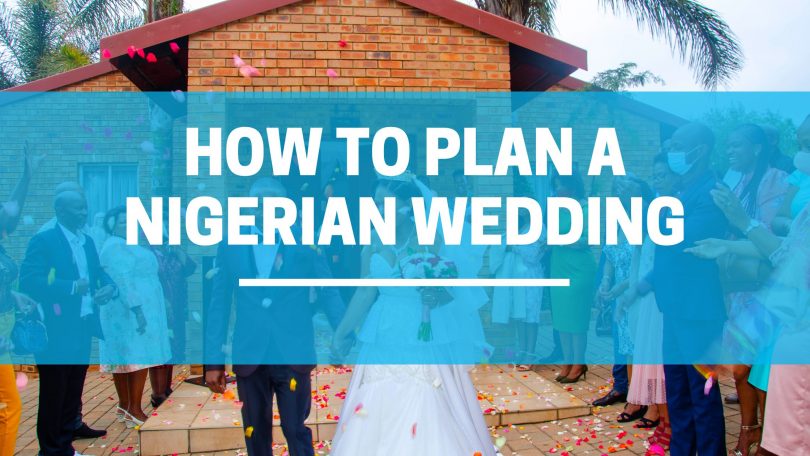You were probably taken by surprise by your engagement and there was a lot of love in the air. Congratulations!, as that is the first step to your marital journey.
The next step is when the wedding date is fixed, you know you’ve got some planning to do, right? The planning of the wedding is mainly the responsibility of the bride. If you fail to plan everything well, you’ll be so stressed on the wedding day especially if it’s Nigerian wedding.
How To Plan A Nigerian Wedding
From the traditional wedding to the church or court wedding, plans need to be mapped out on how the whole event will go to. To do this, here are some steps to aid your wedding plans.
Wedding Introduction
After the engagement, it’s necessary to begin the necessary introductions. Introduce the bride-to-be or the groom-to-be to their inlaws.
Here everyone meets the major family members and gets approval from the elders. This occasion happens in the bride’s home. It’s the beginning of the wedding rites performed in a Nigerian family.
Every tribe has its peculiar ways of introduction. Igbo’s call it “Iku aka”. These rites vary in each village in Nigeria. In the completion of this rite, the couple attains their right as married couples.
Have a budget for your wedding
To avoid overspending and spending on unnecessary things, set a budget. You might be tempted to go for the most recent wedding gown or suit in town, your budget puts a check to that.
Know what your guests need and go for it. This way, you cut down expenses. If you stay within your budget, you can cater for any surprise expenses on that day.
Plan for the weddings you’ll have together
Firstly, how many weddings do you plan to have? Ideally, it’s two in Nigerian society, although some just opt for a traditional wedding.
Either way, you still have to plan for the wedding. The traditional comes before the church or white wedding with some months interval between them.
Unlike white weddings, a traditional wedding is less expensive and demanding as this is handled by the bride and groom’s families.
The traditional wedding is known as “Eru Iyawo” by the Yorubas and “Igba Nkwu ” by the Igbos. Before the marriage, a lot of inquiries are made about both families.
To know if some bad traits and characters can be dealt with, so they won’t be taken by surprise.
If answers to these questions are satisfactory, then the wedding dates can be fixed. Traditional weddings can either be done in a big or small way depending on the choice of the families.
However, in the Yoruba culture, this is done in a very big way and done a day before the white wedding.
Church weddings were introduced by the Western culture, after the colonization. It involves a church service and a reception thereafter.
The bride looks beautiful in her white attire and the groom magnificent in his choice of suit. Here, you have the authority to decide what you want, unlike traditional weddings. You understand this right?
For persons that prefer court wedding, there’s not much preparation as you just need important persons to witness that day.
Pick a venue
Where you choose matters a lot. Check if the roads are motorable and close. Check for the convenience of your guests, you know they matter right?
Do this before you start getting the wedding dress. Deliberate with the major persons of the family, and come up with a venue. You also need to choose the church to host your white wedding and notify them on time.
Have a checklist
A checklist for your wedding aids you in not missing the necessary thing. At the end of each completion, check the list. This way, you stay on track and reduce stress when planning for your wedding.
Planning your big day could be very stressful. This is why you plan and keep planning before that day.
Seek advice from elders for the success of your traditional wedding and of course, try to set your budget for your white wedding. Wishing you the best, in your celebration.








